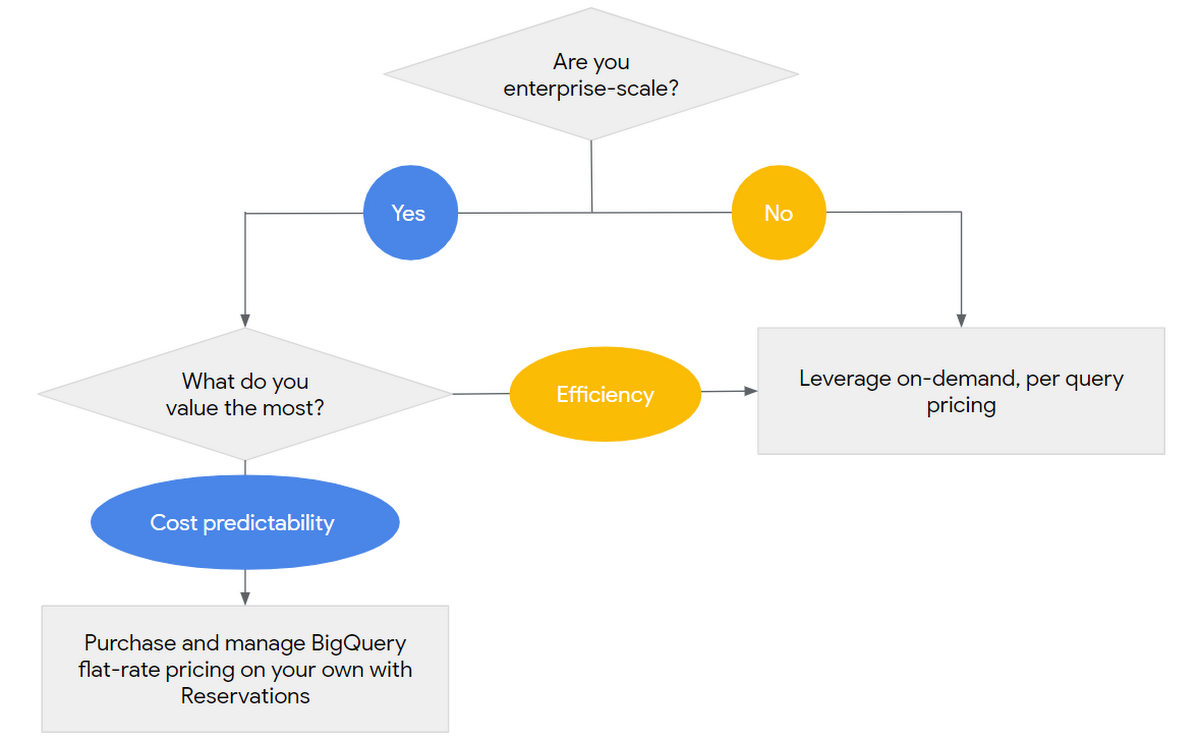 CLOUD
CLOUD
 CLOUD
CLOUD
 CLOUD
CLOUD
Google LLC today announced a new reservation system for its BigQuery service that helps ensure more predictable pricing for enterprises that use it regularly.
BigQuery Reservations helps enterprises to predict their analytics spending more easily because they can purchase capacity in bulk and then allocate it as desired.
Google said that should appeal to many larger organizations in which data analytics has evolved from something they do now and again to a regular, mission-critical task that’s essential to their business operations.
“When you’re doing data analytics at scale, predictable spending is key,” Google Product Manager Tino Tereshenko wrote in a blog post. “To that end, we launched BigQuery’s flat-rate pricing a few years ago, a fixed-rate pricing model that makes it easy for you to predict and control your monthly BigQuery bill.”
BigQuery Reservations is being billed as an “easy and flexible self-service way to take advantage of BigQuery flat-rate pricing.”
The way it works is simple enough. Customers can buy serverless BigQuery slots, which are a measure of capacity for workloads, in chunks of 500 at a time. They can then be allocated to various units, workloads or functions within an organization through the BigQuery interface or via a command line. So, for example, a data science team could be given its own, isolated instances, while marketing and sales teams might be assigned a number of shared slots.
Google said a set of 500 slots is priced at $8,500 with an annual commitment, or $10,000 without one.
Customers can still opt to use BigQuery on an on-demand basis if they desire, and in some cases that may be preferable. Google offers this diagram to help organizations decide which model is best:

Enterprise Strategy Group analyst Mike Leone said BigQuery Reservations said he expects larger organizations will welcome the new pricing model.
“For a serverless, cloud-native data warehouse like BigQuery, the ability to predict costs for customers is huge,” Leone said. “And with our research showing that 42% of organizations plan to use or are exploring serverless analytics over the next 12 months, pricing and consumption flexibility will serve as a key differentiator for GCP.”
Google said BigQuery Reservations will be available in beta in the “coming days.”
Support our mission to keep content open and free by engaging with theCUBE community. Join theCUBE’s Alumni Trust Network, where technology leaders connect, share intelligence and create opportunities.
Founded by tech visionaries John Furrier and Dave Vellante, SiliconANGLE Media has built a dynamic ecosystem of industry-leading digital media brands that reach 15+ million elite tech professionals. Our new proprietary theCUBE AI Video Cloud is breaking ground in audience interaction, leveraging theCUBEai.com neural network to help technology companies make data-driven decisions and stay at the forefront of industry conversations.